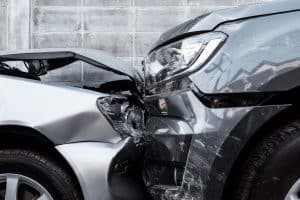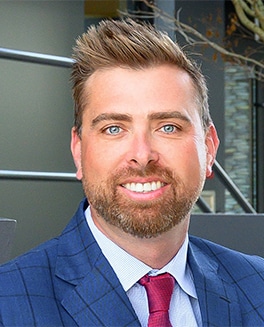What to Know About Car Accident Settlements in Washington State
 If you’ve just been in a car accident in Washington, you’re probably feeling overwhelmed. Between doctor’s visits, insurance calls, and the daily logistics of getting around without your car, it’s easy to put your own questions on the back burner, especially the big one: How much is this all going to cost me?
If you’ve just been in a car accident in Washington, you’re probably feeling overwhelmed. Between doctor’s visits, insurance calls, and the daily logistics of getting around without your car, it’s easy to put your own questions on the back burner, especially the big one: How much is this all going to cost me?
That’s where settlements come in. A settlement is supposed to make you “whole” again, financially speaking. But how that number is calculated, and how the process plays out, can feel like a mystery if you’ve never gone through it before.
Let’s break it down.
What is a car accident settlement?
A settlement is a resolution between you and the at-fault party’s insurance company. Instead of going to court, both sides agree on a payment amount that covers your damages (things like medical bills, lost wages, and even pain and suffering). Once you accept a settlement, that’s it. You typically waive your right to sue later for the same accident.
Settlements are the norm in Washington. Most car accident cases don’t end in a courtroom. In fact, the vast majority (over 90%) are resolved through negotiation.
How fault works in Washington
Washington is a comparative fault state. That means each party in an accident can be assigned a percentage of the blame. If you’re partly at fault, your settlement will be reduced by your percentage of responsibility.
For instance, let’s say your claim is worth $100,000, but you’re found to be 20% at fault. You’d be eligible to receive $80,000.
This makes documenting the accident and working with an experienced lawyer important. Even small shifts in the fault percentage can make a big difference in what you end up with.
What goes into the value of your claim?
There’s no magic formula, but here are the main components that get factored in:
- Medical expenses – Past, current, and expected future bills
- Lost wages – Any income you lost because you couldn’t work
- Loss of earning capacity – If your ability to work has changed long-term
- Property damage – To your car or belongings
- Pain and suffering – Emotional and physical distress caused by the accident
- Loss of enjoyment of life – Especially if you’ve had to give up hobbies, routines, or relationships
You’ll need records, including medical documents, pay stubs, repair estimates, and even journal entries showing how the injury has changed your daily life. The more details you provide, the stronger your case becomes.
How long does the settlement process take?
The short answer is: it depends.
Minor accidents with clear liability and low damages might wrap up in a few weeks. But more serious cases, especially those involving long-term injuries, can take months, and sometimes over a year.
One big reason for the delay? You don’t want to settle before you know the full extent of your injuries. If you sign that release and later discover you need surgery, you’re out of luck. That’s why many attorneys recommend waiting until you’ve reached maximum medical improvement before finalizing your claim.
Should you talk to the insurance company?
Yes, but do so cautiously. Insurance adjusters aren’t your enemies, but they’re not your allies, either. Their job is to save the company money. That means they might:
- Offer a quick, lowball settlement before you’ve seen a doctor
- Ask for a recorded statement and use your words against you
- Downplay your injuries or suggest you were partly at fault
You don’t have to go it alone. Once you hire a lawyer, they handle communications with the insurance company. That lets you focus on healing, not haggling.
Common pitfalls to avoid
Here are some of the mistakes people make that end up costing them:
Settling too early
We get it — you need the money. But accepting a check too soon can leave you stuck with medical bills down the road. Once you’ve signed that release form, the case is closed.
Not seeing a doctor
If you “tough it out” and skip medical care, the insurance company might argue you weren’t really hurt. Always get checked out, even if you feel okay at first.
Posting on social media
That smiling selfie you posted at the park? An insurance adjuster could use it to argue that you’re not in as much pain as you claim. It’s not fair, but it happens. It’s wise to stay quiet online until your case is resolved.
Going it alone
Some people try to handle their settlement without legal help. And sure, that can work for small fender benders. But if your injuries are serious or if there’s any dispute about fault, having a lawyer can make a huge difference in your final payout.
Why you might need a lawyer
Your lawyer knows the ins and outs of car accident cases. They know how to speak the language of adjusters and paperwork. They can help you gather the right evidence, build a strong case, and negotiate aggressively on your behalf.
And here’s the good news: most personal injury lawyers in Washington work on a contingency basis. That means you don’t pay anything upfront. They only get paid if you win.
If you’re worried about whether your case is “big enough” to hire a lawyer, don’t be. It’s always worth having a conversation, even just to understand your options.
What happens if you can’t reach a settlement?
If negotiations stall, you can file a personal injury lawsuit. This doesn’t always mean you’ll end up in court. Many cases settle during mediation or even right before trial.
But filing a lawsuit sends a clear signal: you’re serious about getting what you deserve.
Washington’s statute of limitations for car accident claims is three years from the date of the accident. After that, you lose your right to sue. So don’t wait too long to take action.
Final thoughts
Navigating a car accident settlement in Washington isn’t just about tallying up receipts. It’s about telling your story (the pain, the setbacks, the way your life was disrupted) and making sure that story is heard and valued.
A good settlement won’t erase what happened but it can help you move forward. It can give you space to breathe, recover, and rebuild.
If you’ve been injured in a Washington State car accident and aren’t sure what comes next, Philbrook Law is here to help. We can walk you through the settlement process, protect your rights, and fight for the compensation you deserve.
Schedule a free consultation today and let’s get you moving forward.

Founding Attorney Matthew Philbrook attended Clark College, Washington State University, and Gonzaga University School of Law. He is a member of the Washington State and Oregon State Bar Associations and started Philbrook Law in 2005. He specializes in Personal Injury and Accident cases. Learn more about Mr. Philbrook.

